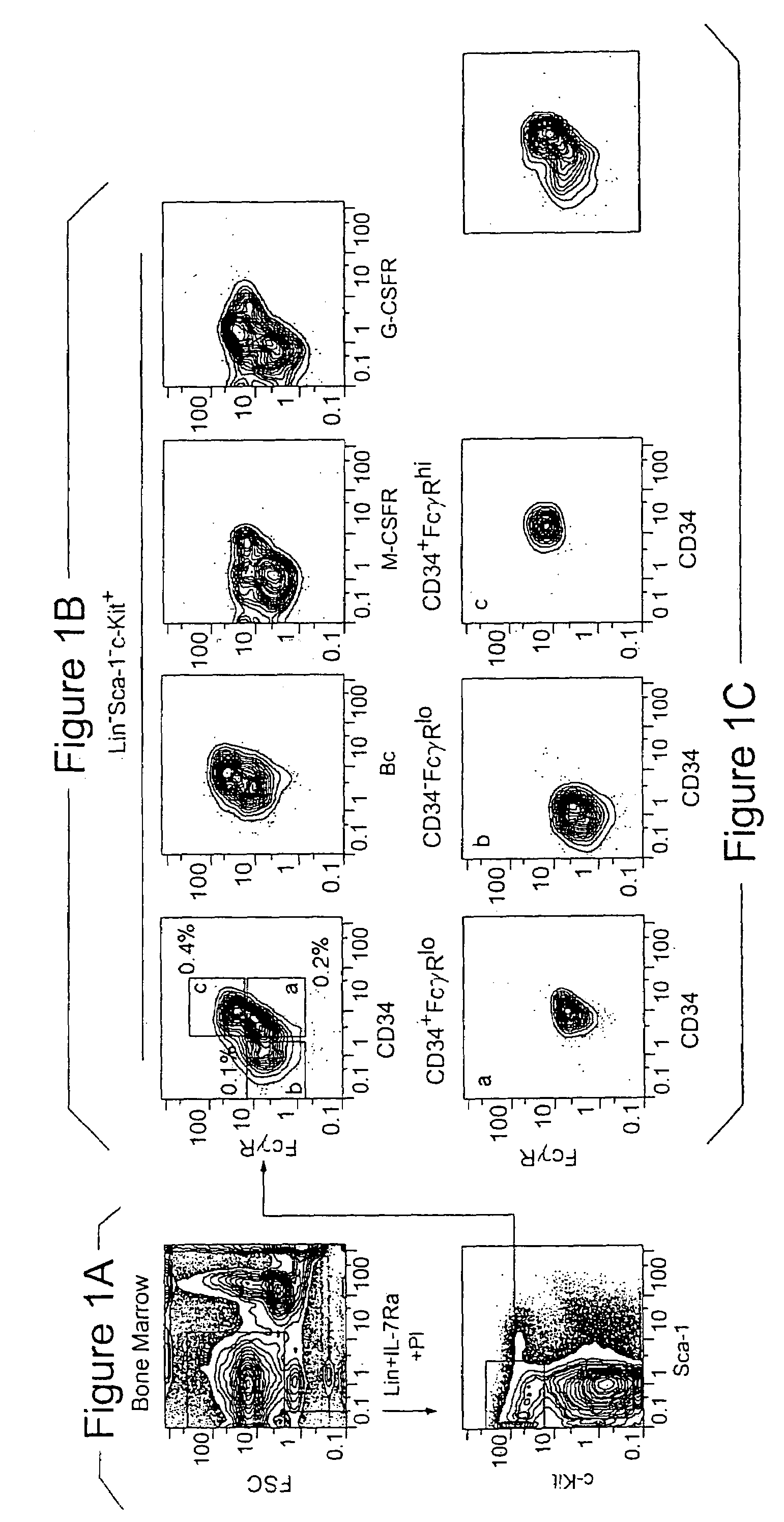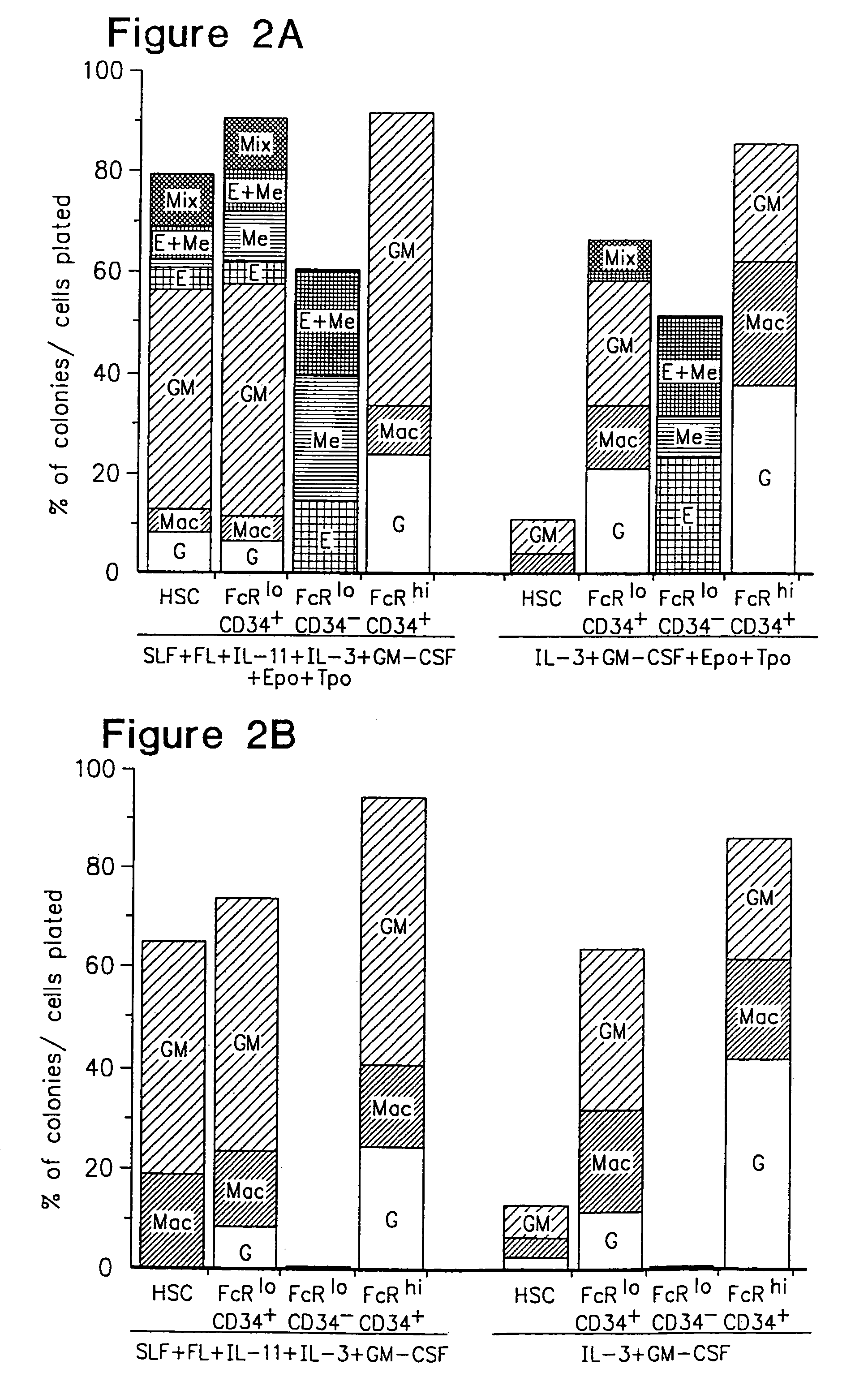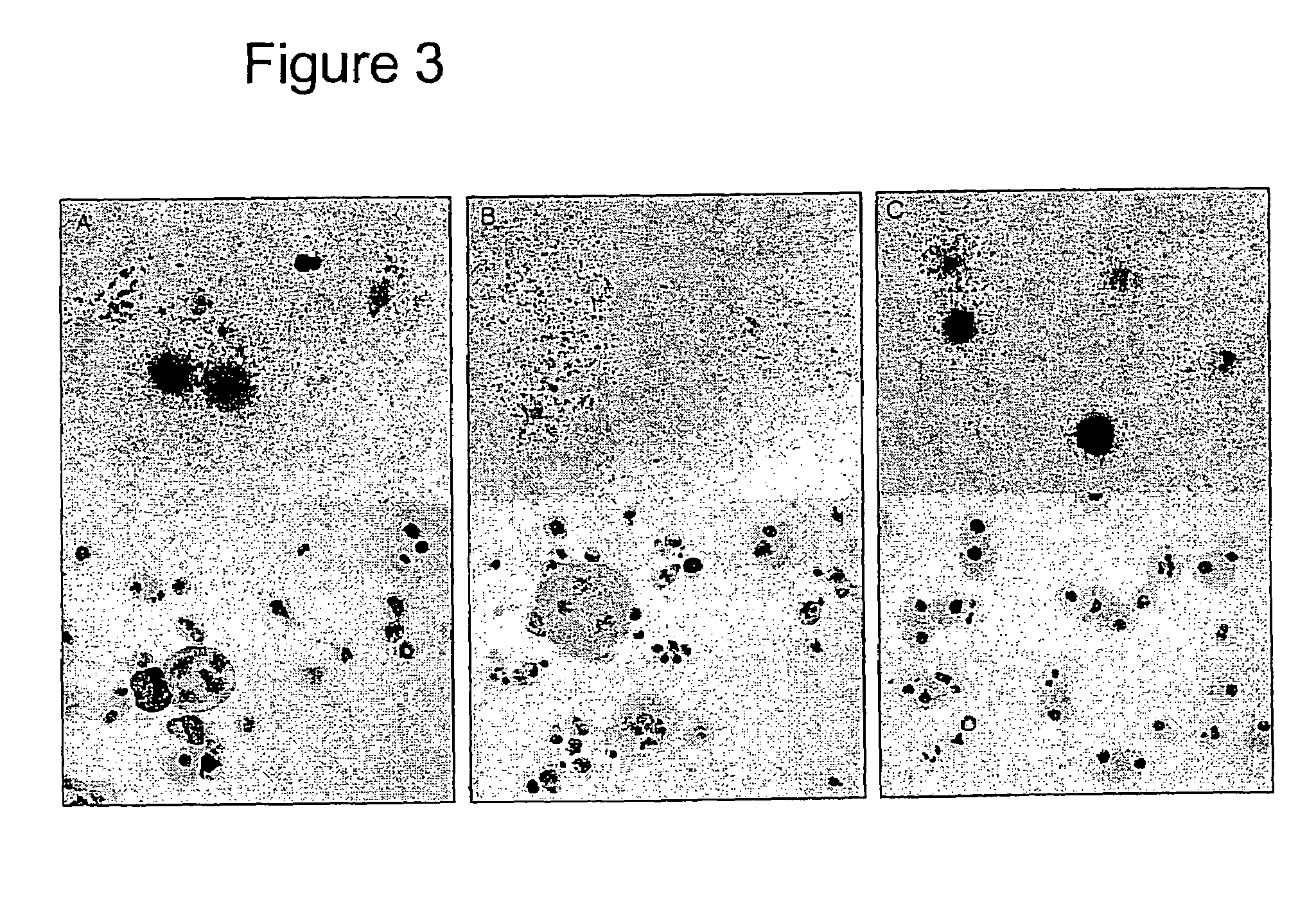Mammalian myeloid progenitor cell subsets
a technology of myeloid progenitor cells and subsets, which is applied in the field of mammalian myeloid progenitor cell subsets, can solve the problems of difficult identification of intermediate bipotent or oligopotent progenitors, autoimmune diseases,
- Summary
- Abstract
- Description
- Claims
- Application Information
AI Technical Summary
Benefits of technology
Problems solved by technology
Method used
Image
Examples
example 1
Isolation of a Common Myeloid Progenitor in Mouse
[0074]FIG. 1A shows the Sca-1 / c-Kit expression profile of the lineage (Lin−) IL-7Rα− fraction. In vitro, myeloerythroid colony-forming unit (CFU) activity was exclusively found in the c-Kit+, but not the c-Kit− fraction. The Lin+L-7Rα−c-Kit+ cells contained Sca-1+ and Sca-1− cells. The Lin−IL-7Rα− Sca-1+ c-Kit+ population is highly enriched for HSC1-3, and a majority of the HSC population were Fc receptor γ I / III (FcγR)lo CD34+. On the other hand, the Lin−IL-7Rα− Sca-1− c-Kit+ cells were subdivided into three subpopulations according to the expression profile of FcγR and CD34; FcγRlo CD34+, FcγRlo CD34− and FcγRhi CD34+ populations (FIG. 1B). The CSF-1 receptor (macrophage-CSF receptor {M-CSFR}), granulocyte-CSF receptor (G-CSFR), and the common β chain (βc) (the indispensable subunit of the receptors for IL-3, IL-5 and granulocyte / macrophage colony-stimulating factor {GM-CSF}), were most highly expressed in the FcγRhi population, sug...
example 2
Isolation of a Common Myeloid Progenitor in Humans
[0087]Most of the human long term repopulating hematopoietic stem cell potential resides in the lin-CD34+CD38-cell fraction. The CD34+ CD38+ CD10+ fraction in bone marrow and the CD34+ CD7+ fraction in cord blood is highly enriched for lymphoid committed progenitors (Galy et al., Immunity 1995, Hao et al., Blood 2001). We therefore searched for the human myeloid committed progenitors in the lin−(CD2,3,4,8,11 b, 14,19,20,56,GPA) CD34+CD38+CD7−CD10− fraction of adult human bone marrow.
[0088]With the additional use of two surface markers: the IL-3Rα (CDw123) and CD45RA we were able to isolate three distinct cell populations in the lin−CD34+CD38+ fraction of adult bone marrow, which functionally are the CMP, GMP, and MEP (FIG. 6). In a methylcellulose assay (containing SCF, FL, IL-11, IL-3, IL-6, GM-CSF, Epo, and Tpo), the lin−CD34+CD38− cell fraction (HSC enriched) and the lin−CD34+ CD38+ IL-3Rαlo CD45RA− fraction (CMP) gives rise to al...
PUM
| Property | Measurement | Unit |
|---|---|---|
| temperature | aaaaa | aaaaa |
| temperature | aaaaa | aaaaa |
| composition | aaaaa | aaaaa |
Abstract
Description
Claims
Application Information
 Login to View More
Login to View More - R&D
- Intellectual Property
- Life Sciences
- Materials
- Tech Scout
- Unparalleled Data Quality
- Higher Quality Content
- 60% Fewer Hallucinations
Browse by: Latest US Patents, China's latest patents, Technical Efficacy Thesaurus, Application Domain, Technology Topic, Popular Technical Reports.
© 2025 PatSnap. All rights reserved.Legal|Privacy policy|Modern Slavery Act Transparency Statement|Sitemap|About US| Contact US: help@patsnap.com



